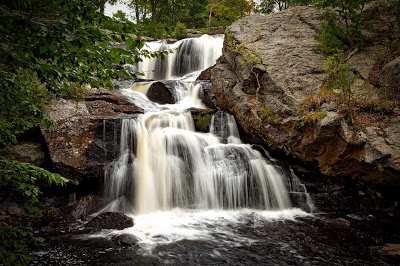by Rabbi Toba Spitzer~
Of the many ways that the Divine is described and experienced in the Hebrew Bible, one of my favorites is Water. In the prophets, in Psalms, God is referred to as Peleg Elohim/“River of God”; M’kor Mayyim Hayyim/“Source of Living Waters”; Ma’ayanei Hayeshua/“Wells of Liberation,” and more. For our Biblical ancestors, the metaphor of God as Water was a powerful way of describing their connection to the Source of Life:
How precious is Your love, O God!…Humanity is nourished from the riches of Your house, You give them drink from the stream of your delight (Psalms 36:8-11). As the deer longs for water streams, so does my soul long for You, O God. My soul thirsts for God, for the living God (Psalms 42:2). YHVH shall guide you always, and satisfy your soul in drought…and you shall be like a watered garden (Isaiah 58:11).
This metaphor was also central to the Torah’s understanding of how we are to live our lives in alignment with our highest values. As the book of Deuteronomy explains, when the Israelites fulfill their covenantal obligations—the ritual and ethical rules for creating holy community—then the rain will fall, and the crops will grow. And when they turn away from their Source, bowing down to the creations of their own hands, then “the skies will close and there will be no rain, and the earth will not yield its produce, and you will soon be lost from the good land that YHVH is giving to you.”
These verses describe a sacred ecology of human actions and their consequences, in which the flow of water is key to understanding our relationship with the Divine. They teach us that fulfilling our ritual and ethical obligations means aligning ourselves with the Flow of goodness and truth. And when we do this, “the rain falls,” the waters of divine blessing flow as they are meant to, and both we—and our mother Earth—benefit.
If we choose to live our lives out of spiritual and ethical alignment, then we will suffer the consequences, which can be understood both as a state of spiritual drought, and as environmental devastation. During these weeks of Elul, we are given an opportunity to re-align ourselves with the Divine Flow. We can pay attention to where we feel spiritually “dry,” and find opportunities to nourish ourselves, to “drink from the stream of Godly delight.” If we feel as if we have gotten off course, drifting away from living in accord with our values, then we have the opportunity to make a course correction in the new year. And perhaps most importantly, we can simply open ourselves to the blessing that flows within us and all around us, immersing ourselves in the Fountain of Living Waters, becoming a “watered garden” that will blossom in the year to come.
Rabbi Toba Spitzer serves Congregation Dorshei Tzedek in West Newton, MA, and currently serves as President of the Massachusetts Board of Rabbis. She is working on a book that explores the rich palette of metaphors for God in Jewish tradition.

